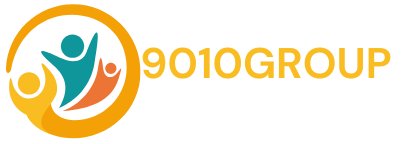Table of Contents
ToggleIn the bustling world of healthcare, there’s a hidden army working tirelessly behind the scenes: human resources professionals. They’re the unsung heroes ensuring that hospitals run smoothly, while keeping a watchful eye on everything from staffing to employee morale. If you think HR is just about paperwork and policies, think again! These professionals are the glue that holds the healthcare system together, juggling recruitment, training, and compliance like seasoned circus performers.
With the healthcare industry booming, the demand for HR specialists is skyrocketing. It’s not just a job; it’s a chance to make a real impact on people’s lives. So if you’ve got a knack for people skills and a passion for healthcare, diving into this field could be your ticket to a rewarding career—complete with the occasional office potluck and the satisfaction of knowing you’re making a difference.
Overview of Healthcare Human Resources Jobs
Healthcare human resources jobs play a vital role in enhancing the efficiency of healthcare organizations. These positions encompass various responsibilities such as recruitment, onboarding, training, and employee relations. Professionals in this field ensure compliance with healthcare regulations, protecting organizations from potential legal issues.
Recruiters specifically focus on attracting qualified candidates for essential roles in hospitals and clinics. They utilize strategies to create appealing job postings and assess applicants’ qualifications through interviews and assessments. Another aspect of HR in healthcare involves training and development programs for staff. Continuous education enhances employee performance and fosters career advancement.
Employee relations within healthcare HR jobs necessitate effective communication skills. Professionals often mediate conflicts and provide support to staff regarding workplace concerns. They also develop policies that promote a healthy work environment, ensuring employee satisfaction and retention.
Compliance with healthcare laws and regulations remains crucial for HR professionals. They track changes in legislation, implement necessary adjustments throughout the organization, and oversee adherence to policies governing patient care and employee safety.
In addition, the demand for specialized HR roles continues to grow due to increasing complexities in healthcare administration. Positions such as HR managers, training specialists, and compliance officers attract individuals with exceptional interpersonal skills. These professionals not only contribute to organizational success but also have a significant impact on the healthcare workforce and patient outcomes.
Key Responsibilities

Healthcare human resources professionals hold a range of key responsibilities critical to hospital operations. Their roles encompass recruitment, employee development, and compliance.
Recruitment and Staffing
Recruitment forms a core function of HR in healthcare. Attracting qualified candidates involves creating compelling job postings that clearly outline expectations. They utilize targeted assessments to identify the best candidates, ensuring a strong fit within the organizational culture. Staffing also requires coordination with department heads to understand specific needs. Filling vacancies promptly maintains organizational effectiveness. Understanding the nuances of healthcare roles aids in finding professionals who align with both job requirements and patient care quality.
Employee Development
Employee development represents another essential area of focus. Effective training programs foster skill enhancement and career progression. HR professionals assess training needs to tailor programs aimed at boosting performance. They facilitate workshops and mentorship opportunities that encourage continuous learning. Promoting a culture of development allows employees to thrive and increases retention rates. Providing clear pathways for advancement demonstrates commitment to staff, which ultimately benefits both employees and patients alike.
Skills Required for Healthcare Human Resources Jobs
Healthcare human resources jobs demand a diverse skill set for success. These skills enhance the effectiveness of HR professionals within the industry.
Communication Skills
Effective communication skills are vital in healthcare HR roles. Professionals interact daily with employees, management, and candidates across various platforms. Conveying information clearly fosters collaboration and trust. Active listening enhances relationships, allowing HR professionals to address concerns and feedback appropriately. Additionally, written communication, such as crafting policies and procedures, ensures clarity and compliance. Strong interpersonal skills also promote employee engagement and morale, leading to a more cohesive work environment. Ultimately, effective communication supports the overall mission of providing quality patient care.
Analytical Skills
Analytical skills play a critical role in healthcare human resources. Professionals often analyze data related to recruitment metrics, employee performance, and retention rates. By interpreting these figures, they identify trends and make informed decisions about staffing and training needs. Evaluating employee feedback also uncovers areas for improvement. Proficiency in tools and software for data analysis can enhance insights and support strategic planning. Understanding labor market conditions allows HR professionals to adapt recruitment strategies effectively. Moreover, analytical skills drive compliance with regulations, ensuring organizations mitigate risks effectively.
Career Path and Advancement Opportunities
Healthcare human resources jobs offer a clear pathway for career advancement. Professionals in this field can expect various opportunities at different levels, allowing them to shape their careers.
Entry-Level Positions
Entry-level positions in healthcare HR typically include roles such as HR assistant or recruiter. These roles focus on administrative tasks like data entry and interview scheduling. Gaining experience in these positions helps individuals develop essential skills in recruitment, onboarding, and employee relations. Exposure to the HR processes allows them to understand the foundational elements of healthcare operations. Many organizations prefer candidates with a degree in human resources or a related field, which enhances career prospects. Moreover, completing internships or certifications can further increase employability and provide a solid start in the field.
Management Roles
Management roles in healthcare HR vary from HR manager to compliance officer. These positions emphasize strategic planning and oversight of HR functions such as talent acquisition and compliance with healthcare regulations. Professionals in management roles often collaborate with senior leadership to align HR strategies with organizational goals. Strong communication and analytical skills become increasingly important for success in these positions. Additionally, attaining advanced degrees or certifications like SHRM-CP or PHR can significantly improve career advancement possibilities. Leadership opportunities allow HR professionals to drive initiatives that enhance workforce effectiveness and patient outcomes.
Challenges in Healthcare Human Resources
Healthcare human resources face unique challenges that impact overall operational efficiency. Staffing shortages represent a significant concern, as the demand for qualified personnel outpaces the available talent pool. Recruitment strategies must adapt continually to attract skilled candidates, necessitating innovative job postings and effective onboarding processes.
Compliance with ever-evolving regulations poses another challenge. HR professionals must stay updated on healthcare laws and policies, ensuring organizations adhere to legal standards while minimizing the risk of litigation. Keeping abreast of changes in legislation requires diligence and proactive communication with management and staff.
Retention rates also present hurdles for healthcare HR. High turnover can disrupt patient care and increase recruitment costs. Developing strong employee engagement initiatives plays a crucial role in fostering loyalty. Creating effective training and mentorship opportunities supports career advancement, which enhances job satisfaction.
Interdepartmental collaboration can complicate HR functions. Coordination with different clinical and administrative areas often leads to conflicting priorities. Building relationships and understanding diverse departmental needs helps HR professionals navigate these complexities.
Technology integration becomes increasingly vital in addressing these challenges. Implementing HR information systems streamlines recruitment, performance evaluation, and training processes. To remain competitive, healthcare HR professionals must leverage data analytics for informed decision-making and improved workforce management.
Moreover, addressing employee well-being is essential for both staff and patient care. Mental health support and wellness programs contribute to a healthier workforce. Effective communication of available resources fosters a supportive environment, leading to better retention and productivity.
These challenges showcase the vital role healthcare human resources play in enhancing patient care and maintaining organizational effectiveness.
Conclusion
Healthcare human resources jobs are pivotal in shaping a thriving healthcare environment. By focusing on recruitment, employee development, and compliance, HR professionals ensure that organizations operate smoothly and effectively. The demand for skilled HR personnel continues to grow as the industry faces unique challenges, from staffing shortages to regulatory changes.
As healthcare evolves, so do the opportunities for HR professionals. Those who invest in their skills and embrace innovative strategies will find rewarding careers that not only enhance their professional growth but also contribute significantly to patient care and organizational success. The future of healthcare HR is bright, promising a dynamic landscape for those ready to make an impact.






